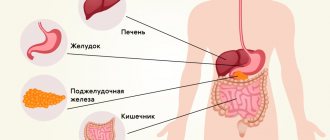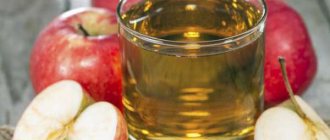Gastritis is a disease of the digestive system associated with an inflammatory process in the gastric mucosa. As a result, the patient experiences increased fatigue, decreased performance, and weakness. The greatest discomfort is associated with pain during gastritis, which occurs depending on the quality of food, time of meal and mental state.
Factors causing gastritis
The main factors that provoke inflammation of the gastric mucosa are:
- Active reproduction of the bacterium Helicobacter pylari.
- Alcohol abuse.
- Smoking.
- Passion for fast food, smoked meats, canned food.
- Consumption of low-quality products.
- Stress and constant nervous tension.
- Disruption of the usual way of life.
People who abuse products containing emulsifiers and hormones are at risk of getting sick.
Clinical picture
The degree of manifestation of symptoms is determined by the stage of the disease, internal factors on which the condition of the gastric mucosa depends. Most patients report severe pain with gastritis, discomfort after eating, or excessive physical activity. Symptoms manifest themselves most clearly during times of anxiety and stress. The spasm that occurs in the stomach increases the secretion of gastric juice, which leads to erosion of the walls of the organ.
Many patients feel stomach pain due to gastritis when eating spicy or sour foods. The disease is characterized by hunger pain, as well as heartburn, belching, bowel movements, nausea, putrid breath, and irritability.
Should you be afraid of Helicobacter pylori?
The bacterium Helicobacter pylori (Helicobacter) is capable of breaking down mucus, exposing the stomach wall. Its “goal” is to get to the latter and provoke permanent inflammation or ulcers, and then cause a precancerous condition - metaplasia. It is interesting that most people have Helicobacter (for example, in Russia - 80% of the population) - and this has been going on for more than fifty thousand years.
To the question “why has humanity not yet died out from stomach cancer?” The answer is simple: in most carriers of the infection, inflammation still does not develop. This happens due to the fact that the immune system and Helicobacter achieve “armed neutrality”: bacteria interact with the human immune system in a complex manner and only sometimes win. However, the risk still remains - and it is not difficult to make it easier for microorganisms to gain access to the stomach if you often take painkillers or abuse alcohol.
Just a few years ago, it was believed that it was necessary to identify and destroy Helicobacter only in individual cases. Today this is indicated for almost all adult patients: experts are confident that the bacterium is the main provocateur of stomach cancer. According to the recommendations of the Kyoto Global Agreement on Helicobacter pylori-associated gastritis, it is necessary to be examined and treated from the age of twelve. European consensus recommendations are slightly different: everyone who lives in countries at high risk for stomach cancer (in particular in Russia and Japan), patients who have bad heredity, gastritis, peptic ulcer disease, any “stomach” complaints, iron deficiency should get rid of Helicobacter , vitamin B12 deficiency, as well as for those taking painkillers and anticoagulants.
Alexey Paramonov points out that the damage caused by Helicobacter varies from person to person, but the risk of developing a malignant stomach tumor is increased in each carrier. According to the doctor, it is especially important to eliminate the bacteria for those who are forced to take antacid medications (omeprazole, lansoprazole, esomeprazole) for a long time. These drugs contribute to the development of atrophy of the gastric mucosa - and this is the first step to cancer if the microbes are not destroyed. But there is good news: timely methods of combating these bacteria allow the mucous membrane to fully recover.
Causes of pain
Most patients note the onset of painful sensations soon after eating. They often appear due to a violation of the diet, when they consume foods prohibited for gastritis. The cause of this unpleasant symptom can be a smoked cigarette or strong coffee.
An attack of gastritis, manifested by severe pain, can be caused by psycho-emotional stress, stress or depression, long-term use of medications, or exacerbation of certain chronic diseases.
Gastritis: how to treat it
Atrophic gastritis of the stomach: photo
Gastritis is an inflammatory process of the gastric mucosa. The cause of gastritis can be a malnutrition, an incorrectly chosen diet, a love of hot and spicy foods, various infections, taking certain medications for a long time, alcohol or severe stress.
As a rule, to diagnose gastritis, a fibrogastroscopic examination is performed, in which the walls of the esophagus, stomach and duodenum are examined using a special microcamera. Additional tests may also be needed to clarify the diagnosis.
Gastritis is treated with diet, antibacterial therapy and drugs that restore the acidity of gastric juice and the gastric mucosa.
Features of pain with gastritis
By the way your stomach hurts with gastritis, you can characterize inflammation.
Aching pain of moderate intensity indicates chronic gastritis. At the same time, after eating there is a feeling of heaviness and discomfort.
Acute intense pain raises suspicion of the development of an ulcerative or erosive process, accompanied by cholecystitis and pancreatitis. A dagger-like sensation may be due to a perforated stomach ulcer.
Hunger pains often occur at night.
The nature of pain with gastritis may look like this:
- Stitching sensations.
- Acute pain.
- Dulled.
- Aching.
There are also side pain sensations that occur in the back, lower back, and other parts of the body.
Burning pain in the chest - gastritis with high acidity
Hyperacid syndrome is characterized by increased production of hydrochloric acid and hyperactivity of pepsin, which increases muscle contractions of the wall (motility). This is typical for damage to the pyloric zone of the stomach in chronic gastritis. The pain is intense and paroxysmal in nature due to spastic contractions of the muscle layer and pyloric sphincter. Located in the epigastrium and hypochondrium on the right, extending to the back.
To select treatment, it is important that the pain mechanism is associated with excessive activity of the vagus nerve, therefore, in order to alleviate the patient’s condition, it is necessary to remove the influence of the vagus. The type of secretion is accompanied by heartburn and burning. Due to gastroesophageal reflux, acid refluxes into the cardiac zone of the esophagus with the development of esophagitis. Patients complain of burning pain in the chest, pain when swallowing, and a feeling of a “lump in the throat.”
Pain in hyperacid gastritis is relieved by:
- warm heating pad;
- drugs with antispasmodic effects (vagolytics);
- by any means that reduce acidity (eating, antacids).
Gastritis causes signs of dyspepsia: sour belching, nausea, spastic constipation with feces in the form of “sheep” discharge, vomiting, which relieves pain. Patients can independently relieve pain by inducing vomiting. This method removes accumulated acid and relieves pyloric spasm. The hyperacid state does not affect appetite, patients do not lose weight.
Localization of pain syndrome
To determine the stage and form of the disease, it is important where the stomach hurts with gastritis. A typical picture is when pain is concentrated in the upper abdomen. In severe forms of the disease, it can spread to the chest area.
Patients often report back pain with gastritis. They occur if there is an inflammatory process on the back wall of the stomach. In this case, the patient strives to take a position to reduce pain. Often this symptom is mistaken for a sign of osteochondrosis.
When the disease is caused by a mental disorder, it may be accompanied by headaches.
Is lower abdominal pain dangerous during pregnancy?
There are two types of pain in pregnant women: physiological and pathological. In the first trimester, discomfort is often felt in the abdominal area. It is important to be able to distinguish dangerous pain from natural pain in time. The causes of pain may be:
- Risk of miscarriage. In this case, there is aching pain lasting more than three hours. To maintain pregnancy, you should urgently go to the maternity hospital. When the pain transforms into cramping attacks, thick discharge with blood appears. Spontaneous miscarriage occurs due to frequent stress or physical activity.
- An ectopic pregnancy is characterized by pain in the form of contractions. It appears on the left or right. The discharge is insignificant, but the woman experiences severe pain, loses consciousness, and the pressure can drop sharply. In the case of an ectopic pregnancy, you must immediately consult a doctor without waiting for the fallopian tube to rupture, as it can be fatal.
- Placental abruption. This condition is very dangerous for the fetus. The pregnant woman has severe pain in her lower abdomen, causing her to writhe in pain. At the same time, the uterus is tense, and the pain is constantly increasing. If urgent measures are not taken, the fetus dies.
- Stomach upset. Almost all pregnant women suffer from diarrhea or constipation. With improper nutrition, the expectant mother suffers from heartburn, nausea, vomiting, and these conditions are dangerous for the development of the fetus.
Features of pain depending on the type of gastritis
Stomach pain is a fundamental symptom of inflammation of the mucous membrane, and in many cases it has its own characteristics.
The etiological characteristics of the disease and the stage of the inflammatory process are determined by how the stomach hurts during gastritis.
Autoimmune gastritis (type A)
Characterized by low acidity. The pain is nagging and dull. Unpleasant sensations occur in the upper abdomen, in the hypochondrium, accompanied by belching and nausea. Sometimes dizziness occurs. The autoimmune form is not characterized by hunger pain.
Helicobacter gastritis (type B)
Caused by the activation of a pathogenic microorganism called Helicobacter pylori. By acting on the gastric mucosa, it provokes increased secretion of juice with high acidity. Dull, nagging pain can be replaced by attacks of stabbing, cutting pain in the acute form of the disease. The place where gastritis hurts in this case is the epigastric region. In addition to painful sensations, with Helicobacter gastritis of the stomach, symptoms also manifest themselves in the form of heartburn, nausea, and vomiting of undigested food.
The typical position for the patient in case of severe pain is lying on his side with his knees bent. Exacerbation occurs more often in autumn and spring, mainly at night. If there is too long a break between meals, hunger pains form.
Reflux gastritis
A disease in which bile backs up into the stomach. Unpleasant sensations appear some time after eating, as well as at night, when quite a lot of time has passed after dinner. Other signs of gastroreflux are belching with a rotten odor and a metallic taste in the mouth.
Catarrhal form
The disease is caused by eating spoiled foods, low-quality alcoholic beverages, and taking certain medications. The description of how the stomach hurts in this form of the disease is similar for many patients. The pain in this case is short-lived, manifests itself in the form of pain, accompanied by vomiting and signs of general intoxication.
Corrosive gastritis
In this case, the deep layer of the gastric mucosa is affected. The pathological process is caused by the ingestion of aggressive chemicals into the stomach, causing a burn. The patient experiences a strong burning sensation in the chest and headache. Left untreated, it can lead to stomach bleeding.
Phlegmonous gastritis
This form is characterized by purulent discharge on the walls of the stomach, which occurs as a result of injury from hard objects. Along with the pain, there is an increase in temperature, loose stools, vomiting, and rapid pulse. The patient must receive emergency medical care to prevent a perforation of the stomach.
How to provide first aid at home during an attack of acute gastritis
What to do if hemorrhoids hurt: how and how to relieve the condition?
Attacks of acute gastritis are characterized by an increase in one or all symptoms at once. To alleviate a person’s condition, it is necessary to call a doctor and provide first aid to the patient before his arrival.
It is necessary to put the patient to bed. Fill a heating pad with hot water and place it on the area of pain – this will relieve the pain a little. Give warm water or warm, but not hot tea to drink. If there are special medications that relieve stomach pain and gently coat the walls of the stomach, then they should be given to the patient according to the instructions. Such drugs are, for example, Maalox or De-Nol.
All measures taken only allow you to gain a little time, and do not prevent a serious illness. An attack of acute gastritis is an extremely dangerous condition, in some cases requiring urgent hospitalization of the patient. And the specialist will not only examine and make his diagnosis, but also prescribe the necessary medications.
In case of an acute attack of gastritis, it is necessary to put the patient to bed, fill a heating pad with hot water and place it on the source of pain, so the pain will subside a little
For several days after an attack, the patient needs special care - strict adherence to a diet that involves eating exclusively low-fat soft foods is necessary. Broths and pureed soups, jelly and porridges are good for this. It is best to abstain from eating food altogether for 1-2 days, giving it up in favor of tea and jelly. In addition to special nutrition, it is also necessary to monitor the daily routine, providing the patient with good healthy sleep at least 8 hours a day.
How to provide first aid at home during an attack of acute gastritis for a child
If a child exhibits the same symptoms as an adult, you should immediately call a doctor at home and try to provide first aid yourself.
However, the assistance provided to the child has its own characteristics:
- gastric lavage is done with a solution of 0.5% baking soda, non-carbonated mineral water or clean boiled water;
- a heating pad with warm water is placed on the epigastric region, a warm compress is placed on the stomach;
- The child is advised to drink plenty of warm water, however, during an attack, feeding him is strictly prohibited, this can only aggravate the situation;
- in case of severe pain, you should give an antispasmodic agent - no-shpa (dosage according to instructions) or belladonna tincture (5-10 drops);
- Bed rest after an attack must be observed for 2-3 days, but you can fast only for the first 8-12 hours after the condition worsens.
A child can be hospitalized only in case of a sharp deterioration in the condition - incessant vomiting or severe dehydration. If there is a large loss of fluid, it is urgently necessary to replace it intravenously.
Relief from pain
There are several methods to relieve pain from gastritis:
- Take medications prescribed by your doctor.
- Adjust your diet by excluding from the menu foods that provoke irritation of the mucous membrane and increase secretion.
- Use folk remedies based on medicinal plants.
At the first symptoms that raise suspicion of gastritis of the stomach, you need to see a gastroenterologist who will prescribe appropriate treatment.
Regardless of whether the pain with gastritis is mild or acute, any measures aimed at eliminating it must be agreed upon with the attending physician.
Drug therapy
Antacids help relieve stomach pain due to gastritis with high acidity. They help reduce pain and at the same time stop the development of the pathological process. You can neutralize the effect of acid, thereby eliminating the irritating factor, with the help of enveloping agents, which include Maalox, Almagel. They are also capable of removing excess acid from the body.
First aid, regardless of where it hurts with gastritis, is antispasmodics. They relieve pain and relieve unpleasant symptoms. Painkillers such as Analgin, Papaverine, Spazmalgon are used. In order not to cause irritation of the mucous membrane, they are recommended to be administered intramuscularly.











